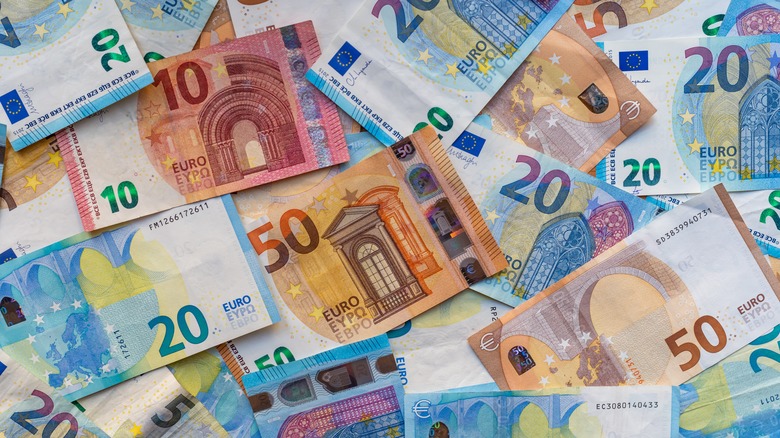What You Should Know About The Tourist Tax When Visiting Europe
Most of us who are lucky enough to travel to Europe do so on a predefined budget. Accommodations, food, and transportation are all accounted for before we set off. But, there is often a hidden cost imposed on visitors to Europe — the tourist tax. Variously dubbed the "city tax" or "occupancy tax," this is a fee imposed on visitors in many European countries, regardless of whether you're staying in a luxury suite or a humble hostel.
The tourist tax typically ranges from a few cents to several euros per night. The exact amount often depends on the city, the accommodation type, and sometimes the length of your stay. Nineteen member states of the European Union levy this tax on tourists who visit, including France, Italy, and Croatia. Conversely, you won't pay the tourist tax in most countries in the Nordic and Baltic regions (excluding Lithuania). That's a money-saving score for notoriously expensive Scandinavia.
Paying the tourist tax
Firstly, the tourist tax is not usually included in the price of the accommodation, so you need to calculate it on top of any price you see when you're booking your hotel. Usually, the tax is collected by your accommodation provider when you arrive or when you check out. Whether you've booked a boutique hotel in Florence, a seaside Airbnb in Santorini, or a hostel in Amsterdam, you're going to get hit with the tax. You can usually pay in cash or by card.
Luckily, the tax is usually not very expensive. In Bulgaria, it can be as little as €0.10 per night; over in Belgium, where you'll pay the most, it can reach €7.50. The amount depends on the city and the type of accommodation you're in, with Eastern Europe generally having lower rates than Western Europe. It may be a flat rate per day or a percentage of your accommodation bill.
The tax is usually charged per person per night. So, for example, if the city tax is €2, a couple staying three nights would pay €12 in total. Certain visitors are exempt from paying the tax, though rules vary from place to place. Children often don't need to pay, or they pay a reduced rate. Certain cities, including Amsterdam and Barcelona, impose a tax on day visitors, too.
Why you have to pay a tourist tax
So what exactly are you paying for when you hand over your Euros? In certain countries and areas, the tax is hypothecated, meaning that the funds are earmarked for the tourism sector. These places include France, Croatia, Poland, Malta, and parts of Spain. In other places, like in German resort towns, visitors who pay the tax are entitled to access some facilities not usually open to the public, like spas.
Generally across all countries, the idea of the tourist tax is to collect funds to relieve the burden visitors sometimes place on popular destinations. In Rome, for example, funds go toward maintaining tourist information points and maintaining the city's infrastructure. In Prague, funds go toward the goal of creating a sustainable tourism destination. Think of the tourist tax as your small contribution to keeping Europe's rich tapestry of cultures, landmarks, and landscapes as enchanting as ever for future tourists to enjoy.


